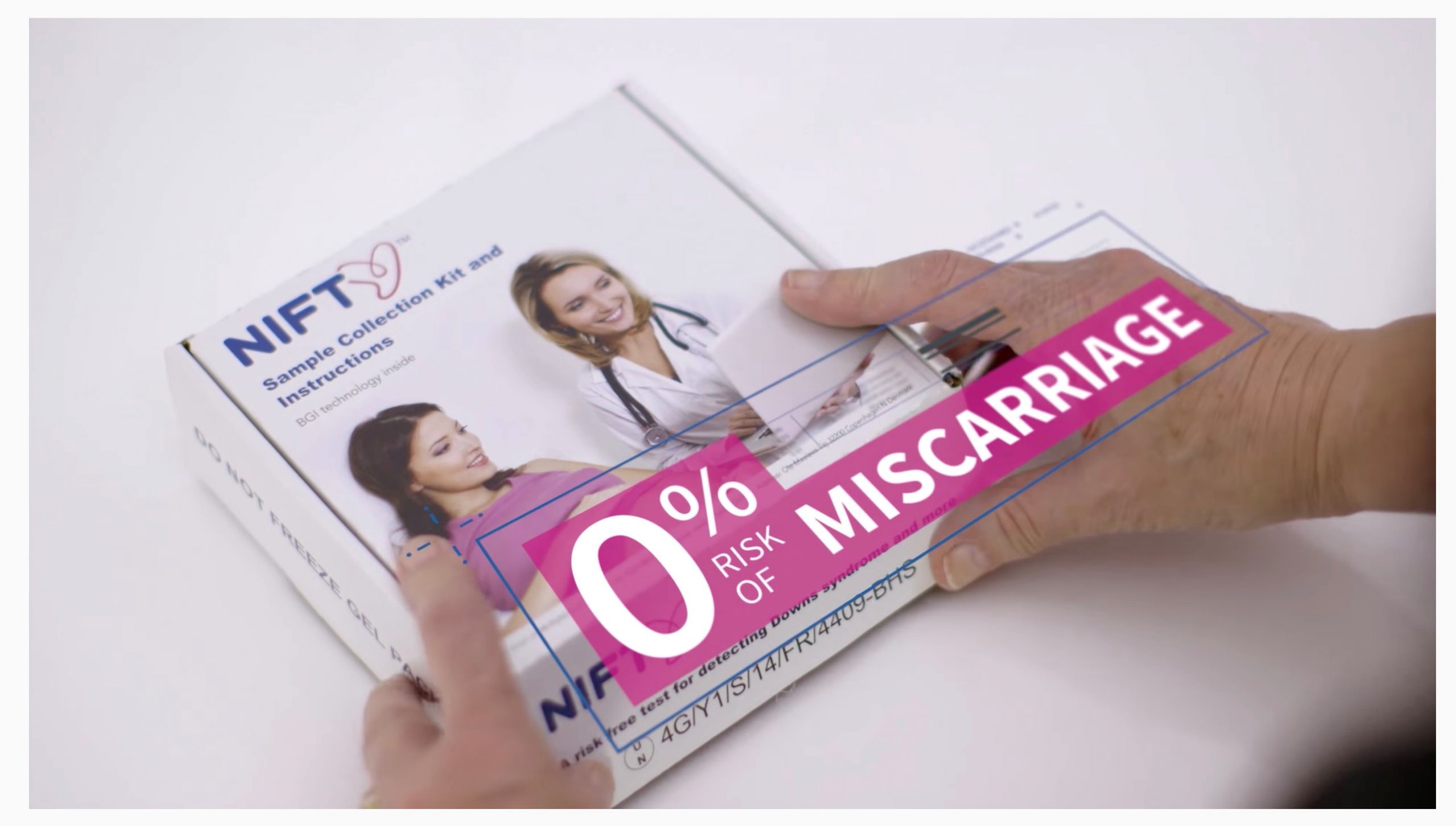Health regulators in five countries are examining a prenatal test that collects the DNA of women and fetuses for research, while some doctors that promoted it and clinics that sell it say they were unaware the company that produces it also conducts research with the Chinese military.
The test, made by Shenzhen-based BGI Group and marketed under the brand name NIFTY, is sold in at least 52 countries. It screens for Down syndrome and more than 80 other genetic conditions, and has been taken by 8.4 million women globally.
The regulators’ concerns, raised in response to a Reuters report, highlight the challenges of regulatory oversight when genetic data is sent from one country to another. Canada‘s privacy commissioner said the report raised important questions about “highly sensitive” information and it is looking into the matter. Two regulators in Europe – in Slovenia and in Germany – said they were examining the test in light of European Union data protection rules.
The data privacy regulator in Slovenia, where one of BGI’s regional partners is based, said it was concerned by the exporting of data from the BGI tests and would examine data protection issues. But it added that Slovenia has not yet adopted the changes to its national laws to make Europe’s General Data Protection Regulation (GDPR) fully applicable, so it cannot issue fines in the event of GDPR breaches.
Reuters reported in July that more than a dozen scientific studies – including clinical trials – showed BGI developed and improved the test in collaboration with People’s Liberation Army hospitals. BGI uses the pregnant women’s genetic data for research into the traits of populations. It also collaborates with the PLA in other areas of research.
BGI rejects any suggestion that it developed the NIFTY test in collaboration with the military, and says working with military hospitals is not equivalent. It said it works with thousands of healthcare providers, that other prenatal test providers in China work with military hospitals, and that many companies worldwide work with militaries. It said it takes data privacy seriously, complies with applicable laws and regulations, and only 5% of its NIFTY tests have been conducted on women overseas.
Consent forms signed by women outside China seek permission for their blood samples and genetic data to be sent abroad to BGI and used for research. The privacy policy on the test’s website also says data can be shared for national security purposes in China – though BGI says it has never been asked to do so.
Regulators in Germany, Australia, Estonia and Canada called for transparency in BGI’s use of women’s genetic data, and said even if data was sent abroad, BGI’s local vendors are responsible for ensuring data privacy. The European Data Protection Supervisor said it was monitoring the situation.
“It is vital that the patient is provided with clear information,” said Beverley Rowbotham, chairperson of Australia’s National Pathology Accreditation Advisory Council.
A regulator in Ontario told Reuters it is now advising women to seek tests from providers in Canada, or places where data security is “comparable” to the protections mandated in Canada. The regulator in Quebec said prenatal tests – like consumer genetic tests – can result in people losing control over their genetic information. Canadian privacy and genetic disclosure laws can impose maximum fines of C$250,000 to C$1 million for breaches, and set strict conditions for exemptions for scientific research.
“Genetic information is not only valuable to marketers and data brokers, but also to foreign states and cybercriminals as well,” the Office of the Information and Privacy Commission of Ontario told Reuters.
Fertility Partners, a clinic network in Canada, said it had no prior knowledge of BGI’s work with the PLA, and had stopped selling NIFTY through its clinics in April for unrelated reasons.
Reuters has previously reported that BGI’s joint research with PLA medical institutes is wide ranging, from efforts to protect soldiers from altitude sickness to mass testing for pathogens. U.S. government advisers warned in March that a vast bank of genomic data that BGI is amassing and analyzing with artificial intelligence could give China a path to economic and military advantage.
The same military hospital that ran clinical trials for NIFTY also collaborated with BGI to send pathogens into space under a military equipment research program, according to 12 scientific papers, which has not previously been reported. BGI did not respond to a request for more information about that research program.
In the United Kingdom, where NIFTY tests are only sold through private clinics, the government said BGI would need to register its test before Sept. 1 to continue selling them. BGI told Reuters it submitted a voluntary registration to the UK medical regulator in August. The UK Medicines and Healthcare products Regulatory Agency (MHRA) told Reuters it had received BGI’s registration but said the application had not yet had data validation and scrutiny by the regulator’s registration and software team.
NIFTY tests are sold overseas through three business models: local clinics collect blood samples to send to BGI in Hong Kong; labs sequence the DNA from blood samples locally and share the data with BGI in Hong Kong where it is stored for five years; or labs complete the entire process locally using BGI technology.
Labs in Spain and Slovenia each told Reuters the genetic data of a client had been used by BGI in mainland China for research, with informed consent.
Slovenia-based GenePlanet, which says it sells NIFTY tests across Europe and also offers its own-branded test using BGI’s technology, said the Slovenia customer gave consent for a “research test.”
GenePlanet says it operates according to EU regulations and has an agreement with BGI that “none of the GenePlanet patient data generated from (the) NIFTY process is going to mainland China.”
The Slovenian and Spanish women’s data was among that of 542 women stored in China’s National GeneBank, which BGI also runs. BGI said the data of the 542 women has not been used for other purposes, and its “scientific research only uses anonymised data.”
Eluthia GmbH, a laboratory in Germany which sells BGI’s test, said its transfer of women’s blood and patient data to BGI had been suspended by the data protection regulator for the Hesse region while it investigates whether the rules had been violated.
Eluthia said it did not know when it could resume sending tests to BGI. Its Chief Executive Ramon Enriquez Schaefer said doctors had called the suspension “excessive” since patients had “expressly consented to the shipment to Hong Kong.” He also said Eluthia hasn’t been able to make “concrete progress” on the regulator’s concerns about BGI’s military collaboration.
BGI told Reuters it is providing information to Eluthia and relevant government authorities to demonstrate it complies with data protection laws.
DOCTORS’ VIEWS
One UK doctor who promoted BGI’s test in an online video when it first became available said he would now advise women not to take the BGI test, due to privacy concerns.
“My personal view now would be to advise anybody not to use the BGI NIFTY test – not from a clinical point of view – but because the data from it might be misappropriated or used for reasons that neither the clinician nor the patient would ever have imagined,” said Bryan Beattie, a fetal medicine consultant.
Reuters contacted Beattie and two other UK doctors who also promoted the test on BGI’s YouTube channels in 2014 for their reactions. The doctors said they were unaware of BGI’s military links. BGI said the doctors were not paid to participate and it had told them the videos were for educational and marketing purposes.
The NIFTY test captures more genetic information about the mother and the fetus than the results patients see, said Beattie, which has previously been reported by Reuters and BGI has confirmed.
“If you were able to link that to large numbers of patients in a foreign country, you would have a fairly good idea of their health profile over the next sort of 20 or 30 years,” said Beattie.
Beattie said he had supported the relatively new technology because it was an improvement on previous methods, but his clinic had switched to a different supplier for reasons unrelated to privacy.
An Estonian scientist who turned down an offer from BGI in 2020 to replace a test developed by his lab with NIFTY said he was concerned European health services, whom he declined to name, were choosing BGI’s test because of its cheaper cost and not considering data security.
“It is a stupidly easy way to earn money for taking a blood sample,” said Kaarel Krjutskov, who runs the Estonian lab.
BGI declined to sell his lab a DNA sequencer unless it also began selling NIFTY, email correspondence seen by Reuters showed.
BGI’s marketing material promotes its sequencing of genes as the lowest cost in the industry. BGI told Reuters it was “always striving to make our NIFTY pricing even more affordable,” without providing further details.
(Reporting by Clare Baldwin in Hong Kong and Kirsty Needham in Sydney; Additional reporting by Allison Martell in Toronto, Allison Lampert in Montreal, Douglas Busvine in Berlin, Tarmo Virki in Tallinn, Alistair Smout and Tom Bergin in London, Krisztina Than in Budapest, Robert Muller and Jan Lopatka in Prague, Radu Marinas in Bucharest, Nathan Allen in Madrid, Joanna Plucinska and Alicja Ptak in Warsaw, Ludwig Berger in Frankfurt, Foo Yun Chee in Brussels, Michael Martina in Washington and Antoni Slodkowski in Tokyo; Editing by Sara Ledwith, Kevin Krolicki and Bill Rigby)
Related

























